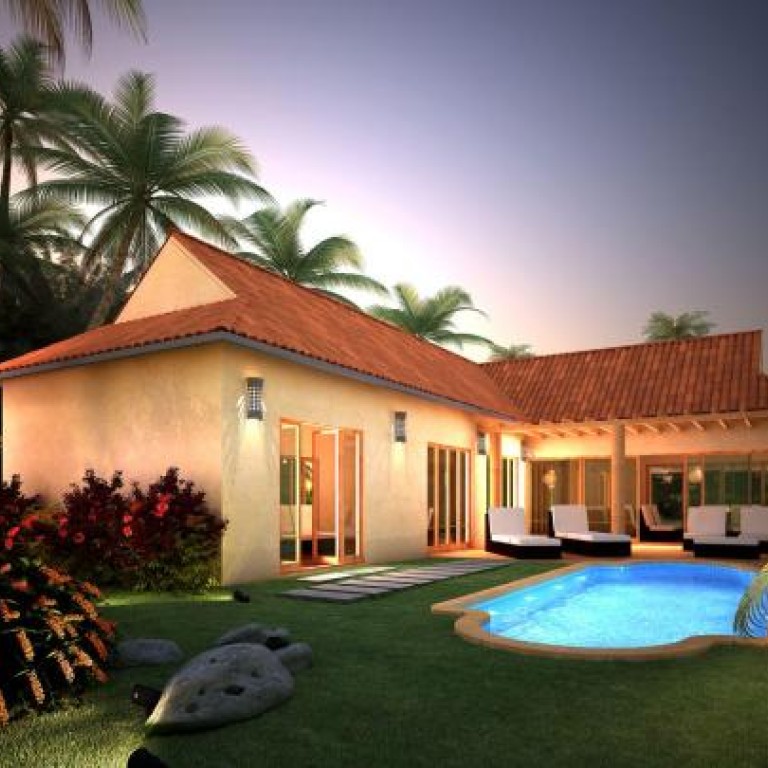
Brazil's rising housing market in line with strong economic performance
The nation's real estate sector may have slowed slightly, but it still continues to outshine almost any other market around the world, writes Peta Tomlinson
Soccer-loving Brazil is also kicking goals in the property stakes, with values rising by a world-beating 18.4 per cent year-on-year.
Brazil recorded the strongest growth of all markets surveyed in the latest Knight Frank Global House Price Index and, even though this is well short of the 30 per cent growth achieved in September 2011 - indicating the market has cooled in the past nine months, according to Knight Frank - it's still a healthy result in the global context.
For as Knight Frank notes, despite news that global house prices nudged up 1.1 per cent on average in the three months to June 2012, the strongest quarterly rise since the same period in 2009), "these improved performances can do little to offset Europe's poor-performing housing markets. Here, the lack of available finance, shrinking job markets and low consumer confidence are stifling housing demand".
Brazil's housing market has risen in line with its strong economic performance since 2004, says Kate Everett-Allen, International Residential Research, Knight Frank LLP. Increasing household wealth and falling unemployment, which fell from 13.3 per cent in 2000 to 6.0 per cent in 2011, help explain consecutive quarters of double-digit growth, she says.
"Demand [for housing], particularly from the emerging middle class, has intensified. Research suggests that the middle class now constitutes about 74 per cent of Brazil's total population, up from just 49 per cent in 2005," she says. Supply is struggling to meet demand, with Brazil's population forecast to rise by 40 per cent, or 78 million, by 2050, she adds.
On top of domestic demand comes interest from overseas. A separate Knight Frank report identifies Brazil as "Latin America's emerging luxury second homes location", attracting cash-rich, time-poor foreigners looking for a second home in the sun, especially in bigger cities such as Sao Paolo and Rio de Janeiro. Developers have catered to their fondness for luxury - especially for modern, integrated resort developments that offer a secure, gated environment. "Whether in a coastal, mountain or city centre location, buyers now have a range choice which has never existed before," Knight Frank says.
The extent of foreign investment in Brazil is highlighted in a new report by Ernst & Young, which hails the Latin American nation as "an investment success story" attracting a record number of foreign direct investment (FDI) projects last year. With the value and number of inward investment projects having tripled since 2007, from US$19 billion to US$63 billion, the firm identified Brazil as now the second most popular global destination in terms of FDI value, and the fifth in terms of number of projects.
The United States continues to be the largest investor in Brazil in terms of projects (up 43 per cent), but China has risen to fifth place, its FDI share increasing six-fold since 2010, with a 70 per cent rise in project numbers. As the Ernst & Young report notes, the Brazilian consumer market has also led to an increase in investments by small- and medium-sized Chinese companies in the country's manufacturing sector.
Jorge Menegassi, CEO, South America and Brazil, at Ernst & Young, says Brazil is an attractive investment destination for Chinese companies, thanks to its vast natural resources in oil, gas and minerals. "In the future, Chinese investment is also expected to be directed at the areas of technology, logistics and infrastructure."
In terms of real estate and tourism, more than a quarter of respondents to the Ernst & Young survey believe both sectors are yet to reach their full potential, expecting "robust growth" in the near future.
To Dean Thomas, managing director of DLT International, which is a developing land and villa project, Palm Springs Natal, the Brazilian real estate sector remains in its infancy "with vast scope for growth". Rumours of a further Greek bailout, continuing uncertainty in the euro zone and an "economic hangover" in the US have investors looking elsewhere for opportunities, Thomas says. "They are turning to Brazil and, increasingly, Brazilian real estate."
Buoying that optimism is the prospect of the soccer World Cup in 2014 and the 2016 Olympic Games, both to be hosted by Brazil. And as Ernst & Young chairman and CEO Jim Turley points out, part of Brazil's success story has been the nation's "ability to position itself as an increasingly attractive place to do business".
But according to Tim Murphy, CEO of IP Global, Brazil has gone off the boil for Hong Kong investors, who find the market "quite challenging" now. "There is no leverage at all, so as a foreigner, getting finance is impossible," he says. "Prices have risen 30 per cent in a couple of years, and while the market might have a bit more in it, it is tricky to make money when you can't leverage."
For those who are buying, Palm Springs Natal offers two- and three-bedroom luxury villas set on 40 hectares of beachfront land priced from £152,500 (HK$1.9 million). Located in Rio Grande do Norte, the property is in one of the country's prime areas, as identified by Knight Frank.

